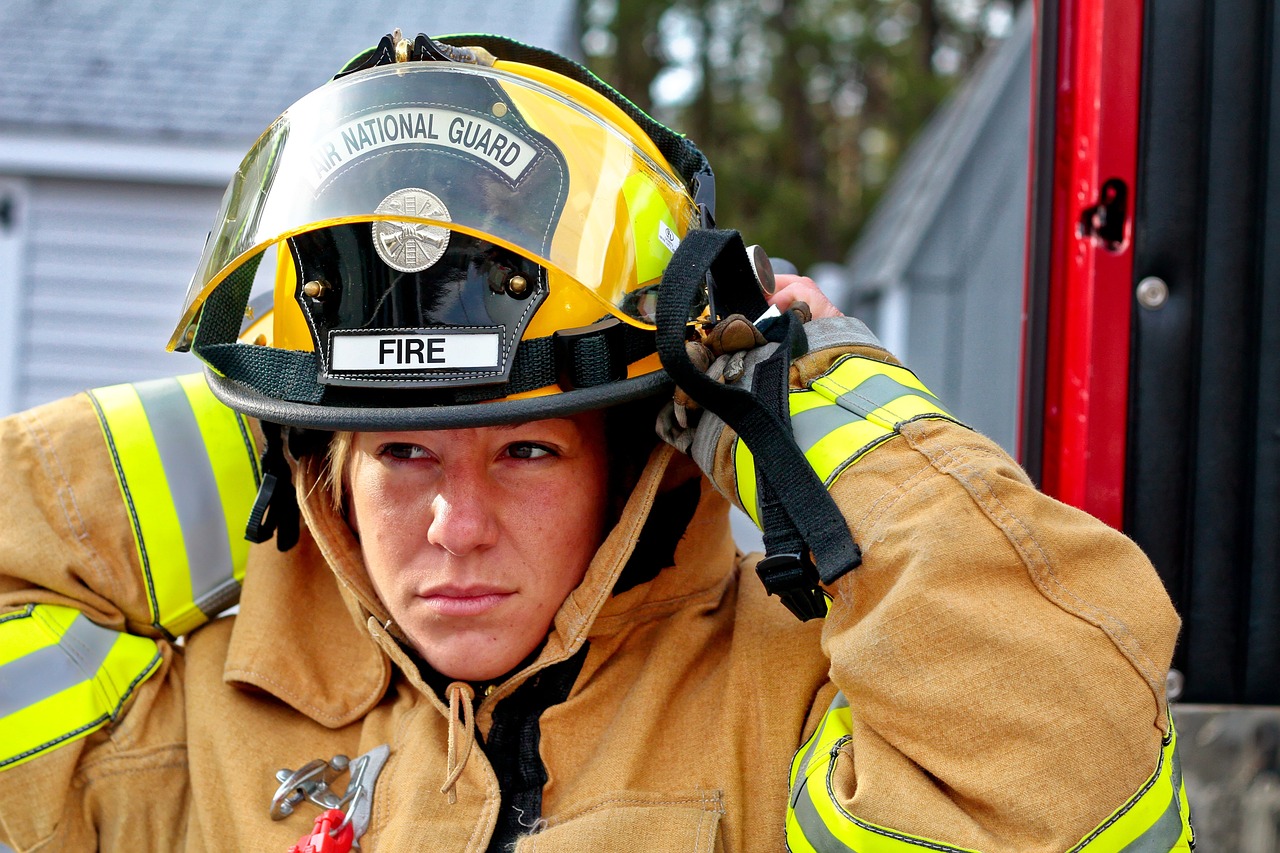How to Study for Firefighter Exam

Individuals aspiring to become firefighters must pass a written exam as a part of the selection process. This exam evaluates the knowledge, skills, and abilities necessary for tackling the demands of the job.
This thorough study guide for the firefighter written test will offer essential information regarding the exam's purpose, format, and structure, along with helpful preparation tips.
Additionally, it will present sample questions to help all candidates, including women fire fighters, get accustomed to the type of questions they might face, as well as provide strategies for achieving success on the day of the exam.
Comprehending the Firefighter Written Examination: Goals, Format, and Organization.
The written exam for firefighters is an essential part of the hiring process, intended to evaluate a candidate's capability for the tasks and responsibilities associated with firefighting. It aims to assess various skills and abilities pertinent to the profession, including reading comprehension, math reasoning, mechanical understanding, and situational judgment. Additionally, completing Firefighting Courses and Colleges can provide valuable knowledge and preparation that enhance a candidate's performance on the exam. This exam allows fire departments to eliminate candidates who may struggle in the challenging and ever-changing field of firefighting. The structure of the written exam can differ from one fire department to another.
The exam generally consists of various types of questions, including multiple-choice, true/false, and occasionally short-answer questions. It assesses a range of subjects, and candidates are typically allotted a set amount of time to finish it. Certain departments may conduct the test using paper, whereas others might opt for a computer-based format. While the exact content and organization of firefighter written exams can vary across different fire departments, they typically address comparable topics, including:
Reading Comprehension: Assesses the capability to understand and interpret written content, including technical documents, instructions, and reports pertinent to firefighting and emergency scenarios.
Mathematics: Assesses fundamental math skills, encompassing arithmetic, algebra, geometry, and data analysis, which are essential for activities like determining water flow, pressure, and hose lengths.
Mechanical Reasoning: Evaluates knowledge of mechanical concepts and principles, which is essential for the operation and maintenance of firefighting tools and equipment.
Situational Judgment: Evaluates the capability to evaluate situations, make choices, and address problems based on scenarios that may arise during firefighting activities.
Human Relations: Assesses one's interpersonal abilities and the effectiveness of interactions with the public and fellow members of the emergency response team.
Moreover, certain exams include hands-on assessments to measure physical preparedness. Grasping the scoring system allows candidates to concentrate on important aspects, which in turn enhances their chances of success.
Ways to Get Ready for the Firefighter Written Test
Effective preparation is crucial for succeeding in the firefighter written exam. Here are some comprehensive tips tailored for candidates getting ready for this specific test.
Review the Exam Content
Begin by acquiring a comprehensive outline of the exam material from the recruiting fire department or their official sources. Familiarize yourself with the extent of each section, which may include reading comprehension, mathematics, mechanical reasoning, situational judgment, or interpersonal relations. Recognize your weaker areas and dedicate additional time to studying those topics.
Consult pertinent firefighting manuals, technical resources, and standard operating procedures, as they may be closely connected to the exam questions.
Practice Sample Questions
Try to answer as many practice questions as you can. Seek out sample questions or past exam papers related to firefighting. This will help you understand the formats of the questions and the various scenarios you might encounter. Focus on the logic behind each correct answer to enhance your critical thinking abilities. Take advantage of resources such as firefighting textbooks, online discussion boards, and preparation courses that provide practice questions designed for the firefighter exam.
Develop Time Management Skills
Time is crucial during the written exam. Begin by tracking the time it takes you to respond to practice questions to understand your speed. Slowly work on increasing your pace while maintaining accuracy. Identify questions that may require more time and focus on the simpler ones to maximize the number of questions you can complete within the time limit. Additionally, practice allocating your time evenly across different sections and questions.
Study in a Structured Manner
Develop a comprehensive study schedule that divides the exam material into smaller, easier-to-handle sections. Set designated times for each subject and adhere to your timetable. Utilize a range of study resources, such as books, online materials, and instructional videos, to accommodate various learning preferences. Frequently revisit earlier topics to strengthen your understanding while also progressing with new content.
Collaborate with Others
Think about joining a study group with other candidates or finding a mentor who has successfully completed the firefighter written exam. This can offer you valuable insights, helpful tips, and motivation. Exchanging knowledge and engaging in discussions can strengthen your comprehension and uncover various strategies for tackling problems.
Take Care of Yourself
It is essential to take care of both physical and mental well-being. Make sure to get sufficient sleep, consume healthy meals, and participate in regular exercise. These practices will enhance your focus and memory, lower stress levels, and improve your overall performance on exam day. Make sure to take brief breaks during your study sessions to prevent exhaustion.
Study with Additional Resources
In addition to working on sample questions, look for official study guides, previous exam papers, and prep books tailored for the firefighter written exam. These materials can offer valuable information about the format of the exam and the reasoning behind the questions.
They typically feature extensive practice tests, thorough explanations for answers, and strategies for test-taking that are tailored to the firefighter recruitment process. By adhering to these comprehensive guidelines and committing to a well-organized study plan, you can greatly improve your likelihood of success on the firefighter written exam.
Final Thoughts
Preparing for the firefighter written exam requires a strategic and dedicated approach. By thoroughly understanding the exam's structure and content, focusing on your weaker areas, and consistently practicing with sample questions, you can build the confidence and knowledge needed to excel. Effective time management and a structured study schedule will ensure you cover all necessary topics efficiently. Additionally, collaborating with peers and maintaining your physical and mental well-being will enhance your overall performance. Commit to these strategies, stay disciplined, and you’ll significantly increase your chances of passing the firefighter exam and embarking on a rewarding career in firefighting.
For students handling tight schedules, essay services with AI paper writer by PaperTyper offers a practical way to stay on track. They deliver polished, well-researched examples that meet academic standards and save time.
The content writing service by Nicole Hardy online offers students professional assistance by crafting insightful and original papers. They guarantee thorough research and proper formatting for all assignments.
From tight deadlines to tricky subjects, essay services with humaniser help students submit polished, original content that’s ready for top marks.
